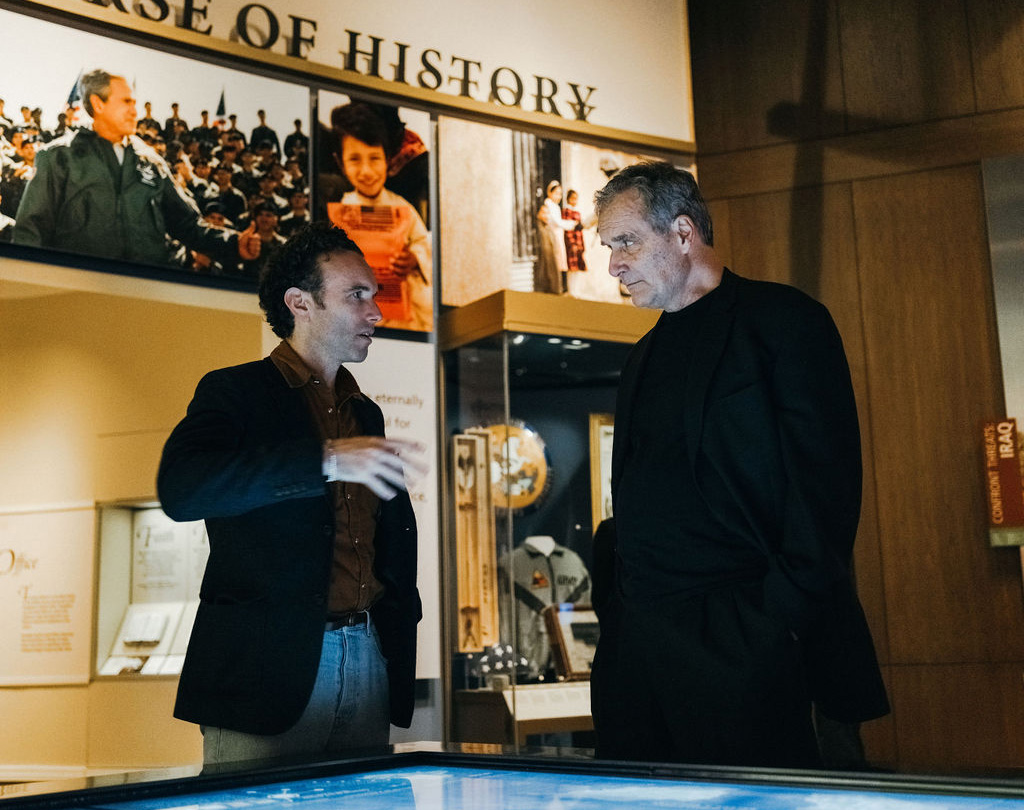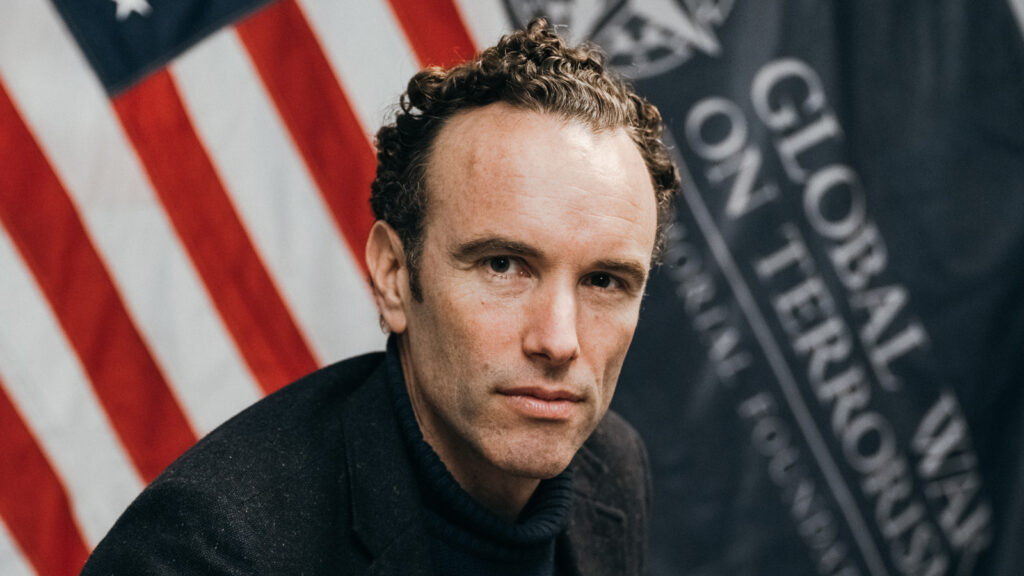As Co-Chair of the Global War on Terrorism Memorial Foundation’s Design Advisory Council Elliot Ackerman emphasizes the importance of creating a Memorial that honors the enduring legacy of an ongoing, multi-generational war and serves as a place of reflection and healing for all Americans.
Tell us about yourself and your role in the Global War on Terrorism Memorial Foundation.
A: I’m Elliot Ackerman, a Marine Corps veteran, former CIA officer, and author. Currently, I serve as Co-Chair of the Global War on Terrorism Memorial Foundation’s Design Advisory Council. My role is to help guide the design of this Memorial, ensuring that it honors the service and sacrifice of everyone impacted by the Global War on Terrorism.
Can you tell us about your time in the military and why you decided to join?
A: I joined the Marine Corps before 9/11 because I wanted a job with a lot of responsibility and felt a strong desire to give back to my country. I was fascinated by the military growing up, and after 9/11, my service took on a new meaning. I served for six years, including leading a rifle platoon in the Battle of Fallujah in 2004. Later, I worked as a Marine special operator and CIA officer in Afghanistan.
What’s your perspective on the non-uniform contributions made by those in the GWOT?
A: The non-uniform contributions to the Global War on Terrorism are often not as visible as the uniform contributions but are just as vital as those in uniform. From intelligence officers to federal agents and, most importantly, the families who support their loved ones, these contributions often go unrecognized. Most Americans might not realize how broadly the Global War on Terrorism has touched people. It’s not just the 1% of active-duty military service members who are currently serving, and it’s not just federal employees who serve, but this is a war that has very much been woven into the fabric of American life for more than 20 years. This Memorial will acknowledge that.
What was your experience like being deployed?
A: Each deployment was different, but my first to Iraq in June of 2004 during the Battle of Fallujah, was the most intense. We fought in one of the largest urban battles since the Battle of Hue City in Vietnam in 1968. Those experiences, along with my time in Afghanistan, shaped how I view war. What is remarkable to me, when I look back on my time deployed, I think of how so many people have been in my life now for almost 20 years. We built an entire lifelong friendship in those seven to eight months while being deployed. So, when I reflect on what it was like to be deployed, oftentimes I find myself just thinking about those specific relationships and the people I was with and what we did for one another.

What will the Global War on Terrorism Memorial mean to Americans?
A: The Memorial isn’t just for veterans—it’s for all Americans. Service members are the ones who go to war, but the war is waged on behalf of all Americans. I had an American flag on my body armor and that flag represents all of us. Memorial represents a place for reflection and healing. They are a place to
What is your hope for the Memorial?
A: My hope is that the Memorial will be a place where people who have been touched by the GWOT in any way can gather and reflect. Whether you’re a veteran, a family member, or a student visiting the nation’s capital, I hope this Memorial will help people make sense of the conflict and find meaning in it. If we can reflect on what this war meant, then we can derive meaning from the war. Making meaning is the way people heal, and ultimately, it’s the way people can come home.
Why is building this Memorial important now?
A: Now is absolutely the correct moment to build the Memorial. First of all, two of the largest operations in the Global War on Terror, namely Operation Iraqi Freedom and Operation Enduring Freedom, have come to their ends. Secondly, it is important to do this now as those veterans get older and their children are asking questions about the war. This Memorial will help Americans pause and understand the past 20 years. This is a unique project because we’re building a memorial to something that endures.



